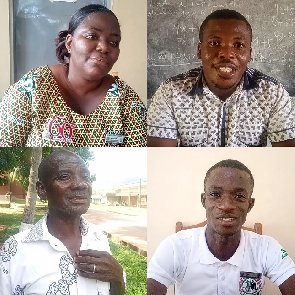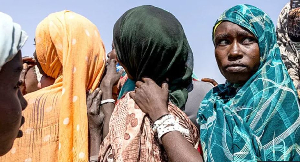Correspondence from Eastern Region Salaried workers in the Yilo and Lower Manya Krobo municipalities in the Eastern Region from both the public and private sectors have expressed worry about the rising cost of living which has reduced real incomes. The real wage has declined over the past few years with the year 2022 recording the worst economic crisis in a long while, a situation workers have consistently called on the government to immediately address. The workers who manage to survive on stable incomes despite daily hikes in the cost of goods and services said analyzing from inflation and exchange rate perspectives, workers' real incomes have taken a nose dive. The aggrieved employees pointed out that the cost of living has surpassed their income levels, forcing them to either seek assistance elsewhere or cut some necessary expenses to stay put. The head of security at a private health facility, Mr. Frank Tebi shared his concerns. Mr. Tebi, in describing the situation as "quite worrying" observed and lamented that the prices of goods and the cedi rate to the dollar increased astronomically almost on a daily basis. "It's not easy, it's quite worrying, my brother, it's quite worrying," a distraught Mr. Tebi re-echoed throughout an interaction with GhanaWeb. "You realize that everyday prices keep on increasing and then with respect to the dollar rate as well, you realize that every minute, every second, there's an increment...so it's quite challenging." According to the married man and father of two who doesn't have any alternative source of livelihood aside from what he earns as a security man, spending "more than he earns" has not been easy with threats from his landlord to increase the rent in the near future. According to madam Victoria Tettey Nartey, a midwife, her situation is as dire as others. Luckily for her, she receives some financial cushion from her husband to enable her to absorb some of the financial challenges she goes through. Comparing the sharp differences between her expenditures at the beginning of the year to today, the health worker observed that there was a big difference, resulting in a huge financial burden on her family. "Comparing as of now to January, you see that there's a huge mismatch between the salary I earn as a person and my expenditure reasons being that the prices of commodities and services are going high but the salary remains the same increasing the financial burden on the little we've saved previously," she said. Madam Victoria Tettey Nartey who also said she does not have any alternative source of income to supplement her earnings named expenses on transportation, commodities, tariffs, etc. as taking the chunk of her income, adding that they're forced to put off some electrical gadgets to reduce their expenditure on power to save some money. Additional responsibilities include two children, an aged mother, and two siblings however continue to pile pressure on her meagre income. Newtown Mawuli Awusie is a science teacher in the Junior High School. Having been in the teaching profession for the past twelve years, the current situation is probably his worst over the years. Though unmarried and without any kids yet, his take-home salary of Ghc2000 (after tax and loan deductions) is barely enough for a comfortable life. He said though he was able to save the same amount in the early part of the year, same cannot be said now. He said, "In January, that Ghc2000 could do a lot, I was actually able to save quite an amount...but currently, the Ghc2000 is woefully inadequate, I can't save, I don't even know what I do with the money." The science teacher said hikes in the numerous expenses such as fuel, food, rent, toiletries, utility bills, medication, etc leave him financially constrained. 64-year-old John Angmortey is a pensioner barely surviving on a Ghc438 monthly pay.
Regional News of Sunday, 23 October 2022
Source: www.ghanaweb.com













